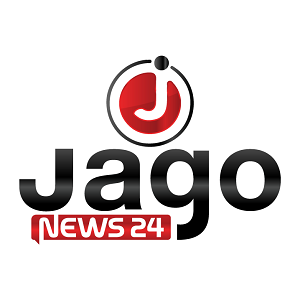Fresh COVID surge doubles mask prices

The narrow alleys of Babubazar, Dhaka’s bustling wholesale hub of medicine and medical equipment, are alive with urgency. Traders weave through crowded stalls, their voices tinged with frustration as they haggle over boxes of face masks.
A fresh wave of COVID-19 infections has swept through Bangladesh, and with it, the price of masks has doubled in just days. For vendors and consumers alike, the soaring costs evoke grim memories of the 2020 pandemic, raising fears of profiteering and a looming public health crisis.
On this humid Saturday morning, Mithu, a 40-year-old mask vendor, stands outside his small shop near Shahjahanpur Railway Station, sorting through dwindling stock. Until last week, he bought boxes of 50 surgical masks for Tk 60-65 at wholesale. Today, the same boxes cost Tk 120, and wholesalers in Babubazar refuse to budge. “They know demand is spiking,” Mithu says, wiping sweat from his brow. “No one’s negotiating. It’s take it or leave it.”
A few kilometres away at Malibagh intersection, Shah Ali, another trader, echoes Mithu’s dismay.
“A thousand surgical masks used to cost Tk 900 wholesale,” he says. “Now it’s Tk 1,600. I’m forced to sell three masks for Tk 10 instead of five.”
The ripple effect is stark: retail prices are climbing, squeezing consumers already battered by rising living costs. N95 masks, once Tk 10 each, now fetch Tk 15-20, while cloth masks have jumped from Tk 20-30 to Tk 50-80.
The price surge is tied to a sharp rise in COVID-19 cases, with health officials reporting increased hospital admissions across Dhaka.
The Mohakhali COVID-specialised hospital, reactivated this week, is treating 13 patients, and the Directorate General of Health Services (DGHS) has begun distributing testing kits to hospitals citywide. Yet, as infections climb, the affordability of basic protective gear like masks is slipping out of reach for many.
For Dhaka’s residents, the situation feels eerily familiar. Mohtasim, a 28-year-old office worker in Moghbazar, recalls the chaos of 2020, when a single surgical mask cost Tk 10-15 and N95 masks soared to Tk 150.
“Back then, we were desperate,” he says, clutching a small bag of masks bought at inflated prices. “Now it’s starting again. We need to stop these price syndicates before it’s too late.”
Subah Hossain, a 35-year-old mother shopping for cloth masks in Motijheel, shares similar anxieties. “Cloth masks used to cost Tk 20-30,” she says, her voice tense. “Now they’re Tk 50-80. I’m worried we’re heading toward another crisis like 2020, when masks were impossible to afford.”
Subah’s concern is not just financial – it’s personal. Her elderly mother, who has respiratory issues, relies on masks for protection, but the rising costs strain her budget.
The 2020 pandemic exposed vulnerabilities in Bangladesh’s supply chains, with mask shortages and profiteering sparking public outrage. At the time, the government cracked down on hoarding and imposed price controls, but enforcement was uneven. Today, as prices climb again, consumers and traders fear history is repeating itself.
The mask price surge reflects a classic supply-demand imbalance, amplified by opportunistic trading. Wholesalers, sensing the growing panic, have hiked prices, knowing retailers have little choice but to pay. Data from the Bangladesh Bureau of Statistics shows that healthcare costs already consume 6-8% of household budgets for low-income families. For daily wage earners like rickshaw pullers or street vendors, a Tk 5-10 increase per mask can mean skipping meals or forgoing protection altogether.
Health experts warn that unaffordable masks could undermine efforts to contain the virus.
Source: UNB

